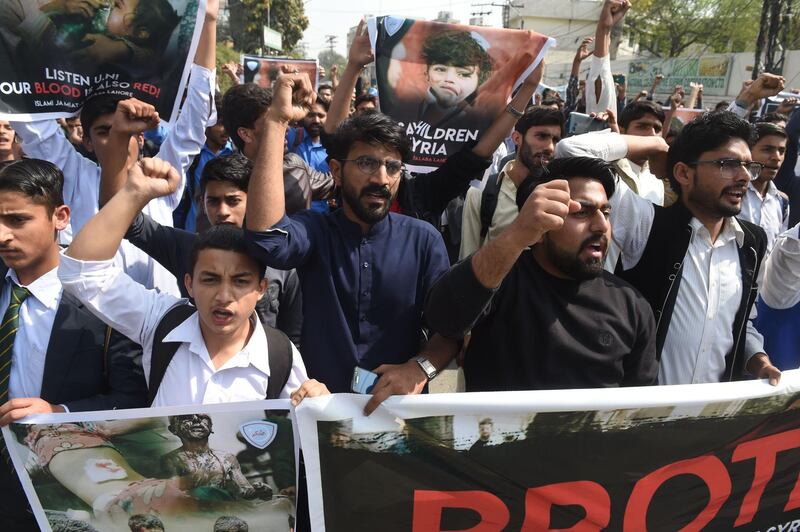The UK government has funded a number of charities vulnerable to co-option by extremist groups to the tune of £6 million, it has been revealed.
The charities stand accused of promoting extremist literature and speakers, as well as lending legitimacy to questionable causes.
One charity "consistently provides platforms for extremist and pro-terrorist speakers and has been outspoken in support of those involved in terrorism".
The funding is provided through Gift Aid, a form of tax rebate on charitable donations in the UK. Charities are able to claim from a donor's tax payments to the UK treasury, thus increasing the gross size of the donation. It costs the UK treasury more than £1 billion every year.
The report, entitled Wolves In Sheep's Clothing: How Islamist Extremists Exploit the UK Charitable Sector, and published by the Henry Jackson Society, examines the activities and funding of some 30 charities which, although legal, raise serious questions about charity oversight.
One of the charities, Helping Households Under Great Stress (HHUGS), is described as "an institutionally problematic charity, with extreme and illiberal individuals involved at all levels, from trustees to supporters, speakers and beneficiaries".
The charity has hosted numerous speakers of an "extremist" nature, including Ahmad Jibril, a US-based speaker who was cited by the London Bridge attackers. Mr Jibril was banned from entering the UK in 2010 by then home secretary Theresa May.
Despite having had its UK bank accounts closed or suspended on three occasions, HHUGS remains operational.
HHUGS also openly defended and supported Afia Siddiqi, a Pakistani-American dubbed Lady Al Qaeda, who was jailed in the US for 86 years in 2010 after attempting "to murder Americans serving in Afghanistan, as well as their Afghan colleagues". In 2014, it was reported that ISIL had attempted to trade US hostage James Foley for her freedom.
In 2011, the organisation also encouraged supporters to write to Khalid Al Fawwaz, formerly Osama Bin Laden's UK spokesman.
The report notes that another charity, The Al Muntada Trust, based in Cardiff, has hosted Nabil Al Awadi, who stands accused by the UAE and Saudi governments of funding ISIL through donations.
But the challenges to charities come from a number of different extremist ideologies, the report warns. "Charities allow these individuals to maximise their influence, through print media, television channels, academic institutions, and through events and conferences."
The report concludes "more needs to be done to prevent these organisations producing an environment conducive to radicalisation.
"In particular, Her [Majesty's] Revenue and Customs, the Home Office, Ofcom, banks, fundraising platforms, the new Commission for Countering Extremism and the Extremism Analysis Unit should work together with the Charity Commission to ensure the most effective response to eliminating Islamist extremism from the charitable sector."
Last year, Home Secretary Amber Rudd vowed to clamp down on the abuse of charity status.
Baroness Stowell was appointed the UK's new charity commissioner last week, despite strong opposition from some corners on account of her lack of experience with non-profit organisations. Responding to the report, the organisation said that such abuse of charity was a priority.
"Tackling the abuse of charities for terrorist and extremist related purposes is one of the Commission's three priority risk areas. Charities exist to make the world a better place and we have made clear that abuse of this kind is not acceptable and damages public trust in charity.
"We work closely with the police, other law enforcement agencies and government departments in this area, to identify, prioritise and robustly tackle concerns", a Charity Commission spokesman said.







